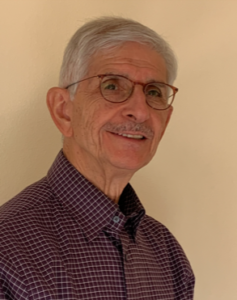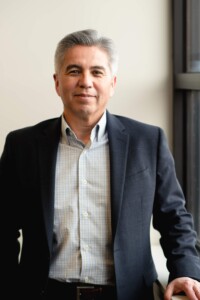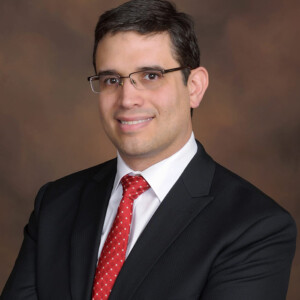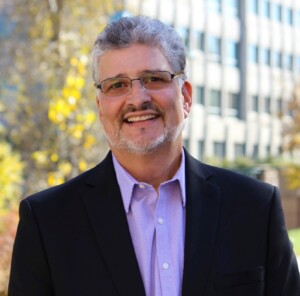This post is also available in:
 Español
Español
By: Regina Schoenfeld
Thanks to grants and donations from Mindsource Brain Injury Network; Dr. Steve and Debbie Cohen; and Dr. Danny Mistry, Aasha Brain Clinic, along with the efforts of a dedicated group of volunteers, The Brain Injury Hope Foundation (BIHF) continues its “Survivor Series” in Spanish. This effort provides information and hope for the Latino/Hispanic community in Colorado and the rest of the country.
Our second annual Survivor Series in Spanish was held on Friday, September 8, 2023. Our host, Dr. Ricardo Esparza, opened the session with some words of encouragement for the participants, inspiring them to move forward.
 |

After a brain injury, everything is possible with rehabilitation. |
Our panelists shared their stories of caring for brain injury survivors as well as surviving their own brain injuries. The discussion touched on the importance of acceptance, the unique struggles faced by survivors post-injury, and the need for ongoing recovery efforts. The panel also addressed issues such as changes in identity, emotional well-being, and the difficulty in recognizing and accepting the impact of such injuries. The audience participated with questions, bringing up specific cases, such as a family member with a severe brain injury who lacks awareness of basic needs.
 |
Dr. Jesús Sánchez Clinical Psychologist |
 |
Dr. Eduardo Oñate Internal Medicine and Sleep Medicine Physician |
 |
José Reyes, Ed.D., LPC Cultural Competency Consultant & Trainer Brain Injury Survivor |
Dr. Eduardo Oñate, a seasoned sleep medicine specialist, was the first to speak. He discussed his passion for helping individuals navigate the complex world of sleep-related issues. He shared his expertise, honed through years of practice, with a particular focus on the intricacies of traumatic brain injuries. Dr. Oñate added a medical perspective to this narrative, discussing the phases of TBI recovery, including acute interventions, early rehabilitation, and the long-term transition to outpatient care. He highlighted the uniqueness of each person’s journey due to neural plasticity. Dr. Onate described the importance of early rehabilitation, physical therapy, occupational therapy and speech therapy beginning during the early rehabilitation period which can be intense and last until the patient is ready to leave the hospital. Outpatient therapy will then continue for as long as needed.
The spotlight then shifted to José Reyes, a TBI survivor and cultural competency consultant, who talked about his injury and ongoing recovery from an accident that took place seven years ago. His narrative began with a bicycle accident, resulting in a life-changing coma and a subsequent struggle with memory loss. As José recounted his journey, he expressed gratitude for the unwavering support of his family, especially his wife, whom he described as an “angel.” A recurring theme in José’s story was the importance of acceptance. He highlighted the initial difficulty in recognizing the severity of his condition, a common challenge among TBI survivors. José’s resilience became evident as he shared his ongoing commitment to recovery, emphasizing the need for continuous effort in solidifying his memory and adapting to the new normal. José delved into the physical and emotional challenges he faced post-injury, including the need to embrace a new identity post-TBI. His struggle to accept the impact on his memory, coupled with the societal expectation of looking “fine” despite ongoing recovery efforts, resonated with many survivors.
A participant shared the story of caring for her brother, who’d been in an accident 3 years earlier resulting in a severe brain injury. She described his inability to move his body or verbalize basic needs, such as hunger. After being in a vegetative state for 6 months, he was transferred to a long-term facility, where he doesn’t receive much therapy due to his lack of awareness. She expressed concerns about his potential pain levels, as well as an inability to sleep. Dr. Onate explained that he could only address the concerns in general, but not provide specific medical advice. He described the need to conduct a sleep study to understand the symptoms and rule out physical causes of insomnia. After that, he then described the link between sleep disorders and cognitive function, saying that these are best addressed as a team effort between neurologists and mental health professionals. Dr. Onate advised against the use of sleeping pills and caffeine, instead advocating for good sleep hygiene.
“Elena” (not her real name) shared her story of self-advocacy and the many barriers she encountered in trying to obtain health care after a hypoxic brain injury. Since her injury didn’t require surgery, she didn’t feel like the typical recovery profile applied to her. She faced numerous barriers to obtaining treatment for chronic migraines and struggled to complete a graduate degree, all while being told that she “looks fine”. She managed to cope by seeking information on doctors and therapies through online platforms. Elena encouraged others to explore various communities and virtual spaces to discover resources and therapies that may not be readily available in their local areas. Dr. Sanchez embraced this sentiment and provided insights into the challenges and possibilities of accessing mental health care across different states. He emphasized the benefits of having mental health professionals who speak the patient’s language and the importance of informal support networks.
As the discussion progressed, the concept of acceptance became a focal point. Dr. Jesús Sánchez, a psychological expert on the panel, emphasized the emotional impact of losing one’s sense of self. He acknowledged the challenges of recognizing and accepting a changed identity, a struggle often accompanied by fear and confusion.
Another participant, “Ana” described her experiences working with an interpreter during her hospital stay, only to have this service end when she was released. This sparked a desire to volunteer to help others in a similar situation. Jose echoed this desire, explaining that it led him to start a Spanish-Speaking Survivors Group at Craig Hospital (see resources for details). These comments led to a broader discussion of the need for community resources, and how sometimes teletherapy ends up being the best alternative.
The focus shifted to the significance of community support and accessible resources for trauma survivors. “Elena” shared her personal experience, emphasizing the need for healthcare professionals to truly listen to patients’ details and experiences. The discussion expanded to the challenges faced by women who choose to remain single and the broader conversation needed about emotional and personal aspects of trauma recovery. The role of mindfulness, meditation, and cultural considerations in mental health care was discussed. All the presenters agreed on the importance of language, community support, and the limitations within the healthcare system.
As the panel wrapped up, participants were invited to stay for an informal “fireside chat” to share more personal details and foster a deeper sense of connection within the community. The overarching takeaway from the discussion was the power of community engagement and communication in navigating life’s challenges.
Next event: October 13, 2023:The Impact of Traumatic Brain Injury on Military Families, Active Service Members and Veterans: A Resource Panel
Resources Mentioned During the Session:
The following providers speak Spanish and provide healthcare services to individuals. We do not endorse any particular providers. Please ask the provider about insurance coverage prior to initiating treatment.
PHYSICIANS:
- Oscar Sanchez, MD, FAAPMR Chief, PM&R service, Denver Health Hospital, Asst. Professor, Dept. PM&R University of Colorado. Oscar.Sanchez@dhha.org 777 Bannock Street, Denver, CO 80204
NEUROPSYCHOLOGISTS:
- David Mirich (Psychologist and Neuropsychologist) Independent Practice
2860 Ames Street, Wheatridge, CO 80214
303-824-0132
PSYCHOLOGISTS:
- Jesus Sanchez (Psychologist) 357 McCaslin Blvd, Suite 200, Louisville, CO 80027 ( 720-360-1801 ) Provides face to face treatment and Telepsychology, Independent Practice Insurance: Worker’s Compensation and Private Pay
- Idalia Massa-Carroll (Psychologist) Colorado Psychological Services, Independent Practice. 720-244-0201 Provides Telepsychology. Insurance: Worker’s Compensation and Private Pay
- Yaira Oquendo-Figueroa (Psychologist) Salud Family Health Clinic, Vice President of Behavioral Health (yoquendo@saludclinic.org 303-827-2601Lupe Ledezma (Psychologist) 7475 Dakin Street, Suite 620, Denver, CO 80221 ( 303-913-2883 ) Insurance: Worker’s Compensation.
COGNITIVE AND LANGUAGE SPEECH PATHOLOGISTS:
- Noelle Mitchell, M.A., CCC (Speech-Language Pathology and Cognitive Re-Training)
14143 Denver West Pkwy, Suite 100, Golden, CO 80401
Phone: 303-941-3485 Fax: 303-447-3122 noelle@neurocogtherapy.com
Insurance: Private Pay, Some Insurances

